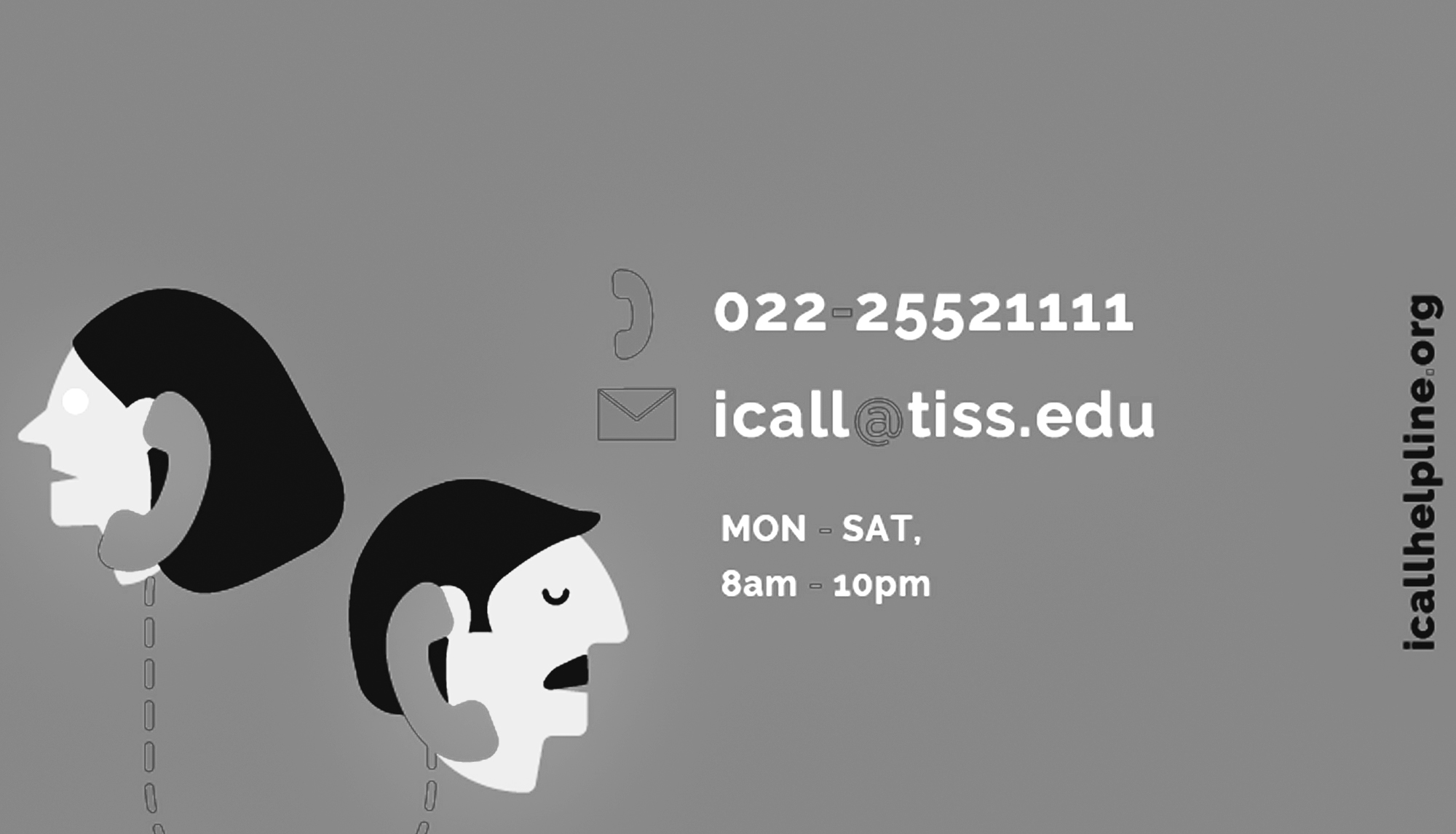Partners
iCALL Psychosocial Helpline
iCall is a psychosocial helpline providing telephonic and email-based counseling to individuals with mental health issues. A pioneering and empowering mental health initiative that uses a variety of strategies and solutions, it was started in 2012 as a project at the School of Human Ecology, Tata Institute of Social Sciences (TISS), Mumbai. Mental health facilities in India are still quite inadequate, given the limited number of services on offer and the lack of enough trained professionals. iCall is a significant step towards bridging some of these gaps. TISS has, as a matter of fact, frequently taken the lead in addressing the psychosocial needs of individuals across diverse groups.
All its counselors are qualified, trained and skilled. Callers are free to maintain anonymity, and are assured of patient listening, confidentiality, and consistent, sustained support. A number of special features mark iCall’s services: during work hours, callers are immediately connected to counselors – there are no busy tones, no annoying IVR to deal with; every email, tweet or Facebook message receives a reply within 24-48 hours; the approach is entirely non-judgmental — callers may talk to iCall’s counselors about any issue affecting them, without feeling afraid or embarrassed.
Besides its counseling services, iCall conducts sessions on mental health concerns and related strategies for a wide range of stakeholders. Its mental health outreach activities for institutions include conferences, talks, different events, posters, brochures. It also brings out free newsletters for the public at large, aimed at awareness building and crisis prevention. iCall uses social media to address public mental health awareness; it offers employee assistance programs for corporates, as well.
iCall’s particular focus is on inclusion, and on working with an understanding of and sensitivity to the lived realities and concerns of variously marginalized individuals and communities – persons who are vulnerable to violence and abuse based on (often intersecting) factors such as age, gender, caste, class, sexuality, physical ability, mental well-being.
Projects with MHI
iCall is entirely funded by MHI.
‘Fostering Strengths: Skills and Perspectives for Enhancing Psychosocial Wellbeing of Adolescents and Young People’
This short-term course was offered by iCall jointly with Vishakha, an NGO with its roots in the women’s movement in Rajasthan. The first run of the course, with 17 participants, was held from April to September 2017, at TISS Mumbai, and was facilitated by a team of experts specializing in different areas of work concerning adolescents and young adults.
The course caters to professionals engaged with the psychosocial well-being of adolescents and young adults, and aims to equip them with contextualized, evidence-based, multi-level skills and interventions to aid them in their work. Informed by a participatory, empowerment-oriented approach, the course is delivered through a nine-day residential institute, followed by a three-month practicum (field) component with weekly supervision, and finally a three-day contact class. The nine-day syllabus includes frameworks, values and perspectives for setting the context for working with adolescents and young people in India; the psychosocial concerns of adolescents and young people, and foundational counseling skills for working with them. The modules impart a basic understanding of: gender and sexuality; relationship concerns; abuse, violence and trauma; addictions – substance-related, and habitual; suicidal and non-suicidal self-harm; academic and career-related concerns. And, not least, the course teaches self-care for the helping professional.
Over the course of three months after the completion of the nine-day residential institute, the participants worked in their respective field settings with adolescents and young people located in different contexts, on several aspects of psychosocial well-being.
One of the key objectives of the subsequent, three-day follow-up contact class, was to create a platform where participants could share with each other the unique psychosocial interventions they designed and implemented in the course of their field work. Another important objective was to have additional training sessions pertaining to specific needs articulated by the participants, emanating from their experiences, and from the challenges they faced, during the practicum.
To know more about iCall, click here.
